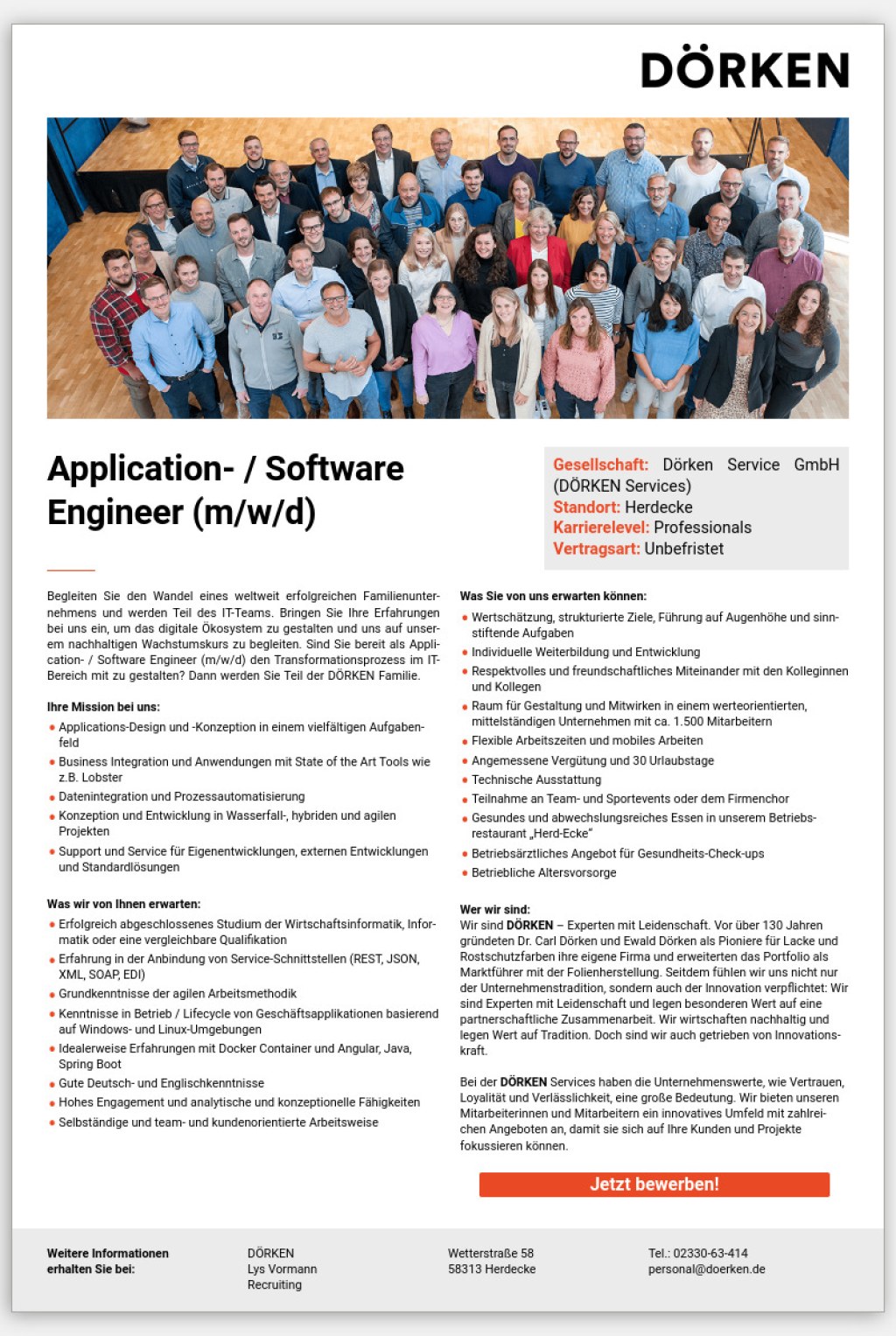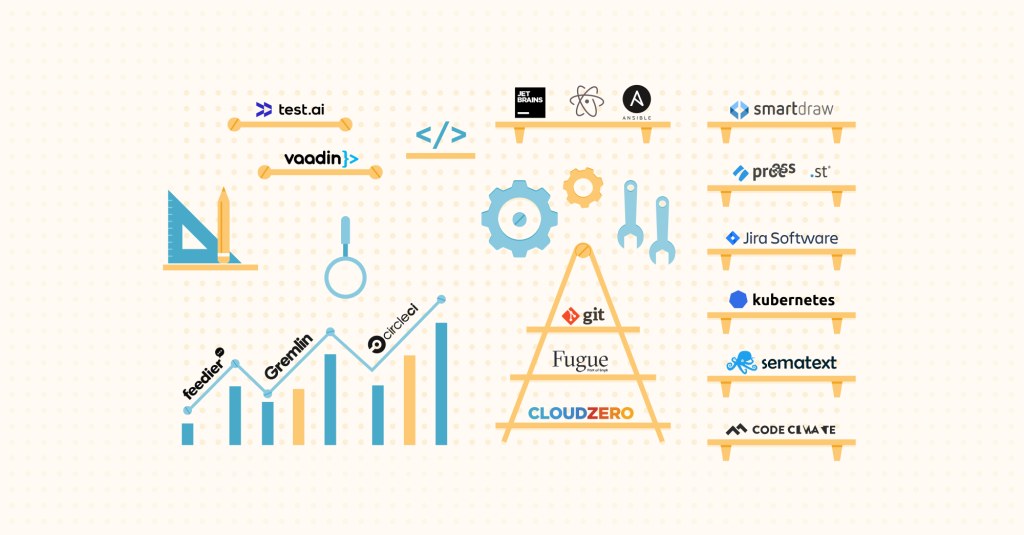Unlock Your Potential: Explore Exciting Software Tools Engineer Jobs Today!
Software Tools Engineer Jobs
Greetings, Readers! In this article, we will delve into the world of software tools engineer jobs. This field offers exciting opportunities for individuals with a passion for software development and a knack for problem-solving. Join us as we explore the ins and outs of this profession and discover the skills required to excel in this role.
Introduction
Software tools engineer jobs revolve around developing and maintaining software tools that aid in the software development process. These professionals play a crucial role in ensuring the efficiency and effectiveness of software development teams. They design, implement, and maintain a variety of tools that streamline the workflow, enhance productivity, and improve the overall software development process.
3 Picture Gallery: Unlock Your Potential: Explore Exciting Software Tools Engineer Jobs Today!



Software tools engineers work closely with software developers, quality assurance teams, and other stakeholders to understand their needs and develop tools that cater to those requirements. They are responsible for ensuring that the tools are user-friendly, reliable, and capable of meeting the demands of the development process. With their expertise in software development and knowledge of industry best practices, software tools engineers contribute significantly to the success of software projects.
Now, let’s dive deeper into the various aspects of software tools engineer jobs:
What is a Software Tools Engineer?
A software tools engineer is a professional who specializes in developing and maintaining software tools that facilitate the software development process. They create tools that automate repetitive tasks, improve efficiency, and enhance collaboration among team members. These tools can range from code editors and build systems to debugging tools and performance analyzers. Software tools engineers leverage their technical skills and knowledge of software development principles to design and implement tools that address the specific needs of their organizations.
Key Responsibilities:

Image Source: evolver.de
1. Collaborating with software development teams to identify tooling needs and requirements.
2. Designing, developing, and maintaining software tools that enhance productivity and streamline the development process.
3. Testing and debugging tools to ensure their functionality and reliability.
4. Providing support and training to users of the software tools.
5. Staying updated with the latest industry trends and technologies to continuously improve the tools.
6. Conducting regular evaluations to identify areas for improvement and optimize the tools’ performance.
7. Collaborating with cross-functional teams to integrate the tools with existing systems and workflows.
Who Can Become a Software Tools Engineer?
Software tools engineering is a multidisciplinary field that requires a combination of technical skills and knowledge. Individuals who possess the following qualities are well-suited for software tools engineer jobs:
Skills and Qualifications:
1. Proficiency in programming languages such as Python, Java, or C++.
2. Strong problem-solving abilities and attention to detail.
3. Knowledge of software development methodologies and best practices.
4. Experience with software testing and debugging.
5. Familiarity with version control systems and collaboration tools.
6. Excellent communication and interpersonal skills.
7. Ability to work well in a team and collaborate with cross-functional stakeholders.
When to Consider a Career in Software Tools Engineering?
If you have a passion for software development and enjoy working on tools that enhance the efficiency and effectiveness of the development process, a career in software tools engineering might be the right fit for you. Consider pursuing this path if you:
Have the following aspirations:
1. Want to contribute to the software development process by creating tools that optimize productivity and streamline workflows.
2. Enjoy designing and implementing software solutions that address specific needs and challenges.
3. Thrive in a collaborative environment where you can work closely with software development teams and stakeholders.
4. Have a keen interest in staying updated with the latest technologies and industry trends.
5. Desire to continuously improve and refine your technical skills in a dynamic and evolving field.
Where Can You Find Software Tools Engineer Jobs?

Image Source: cloudzero.com
Software tools engineer jobs can be found in various industries, including technology, software development, and research organizations. The demand for skilled software tools engineers is high, and opportunities exist both in established companies and startups. Online job platforms, professional networking sites, and company career pages are excellent resources for finding software tools engineer job openings. Additionally, attending industry conferences and networking events can help you connect with potential employers and gain insights into the field.
Why Choose a Career in Software Tools Engineering?
Choosing a career in software tools engineering offers several advantages for individuals passionate about software development and innovation:
Advantages:
1. Impactful Contributions: As a software tools engineer, you have the opportunity to make a significant impact on the software development process by creating tools that enhance efficiency and productivity.
2. Constant Learning: Software tools engineering requires staying updated with the latest technologies and industry trends, ensuring continuous learning and professional growth.
3. Collaborative Environment: Working closely with software development teams and other stakeholders fosters collaboration and allows for a diverse range of perspectives and ideas.
4. Problem Solving: Software tools engineers face unique challenges that require creative problem-solving skills, making the role intellectually stimulating and rewarding.
5. Versatility: The skills acquired as a software tools engineer are transferable across industries, giving you the flexibility to explore different domains and career paths.
Disadvantages:
While software tools engineering offers numerous advantages, it is essential to consider the potential disadvantages:
Disadvantages:
1. Complex Problem Domain: Developing software tools can involve complex technical challenges that require a deep understanding of software development principles.
2. Continuous Learning: Staying updated with the latest technologies and industry trends requires a commitment to continuous learning and professional development.
3. Time Constraints: Designing and implementing software tools can be time-consuming, particularly when facing tight deadlines for software project delivery.
4. Technical Support: Providing support and training for the software tools may be required, which can add an additional layer of responsibility to the role.
5. Evolving Technologies: The field of software tools engineering is dynamic, with technologies and frameworks continually evolving. Keeping up with these changes can be demanding.
How to Become a Successful Software Tools Engineer?

Image Source: careerkarma.com
Becoming a successful software tools engineer requires a combination of technical skills, industry knowledge, and personal attributes. Here are some tips to help you excel in this role:
Tips for Success:
1. Continuously Enhance Your Technical Skills: Stay updated with the latest programming languages, tools, and frameworks relevant to software tools engineering. Regularly explore new technologies and expand your skill set to remain competitive in the job market.
2. Build a Strong Foundation in Software Development: A solid understanding of software development principles and best practices is crucial for creating effective and efficient tools. Invest time in honing your programming skills and familiarize yourself with popular development methodologies.
3. Foster Collaboration and Communication: Effective communication and collaboration are essential for working with software development teams and other stakeholders. Develop strong interpersonal skills and actively seek opportunities to collaborate with others.
4. Embrace Continuous Learning: The field of software tools engineering is ever-evolving. Stay curious, embrace new technologies, and continuously seek opportunities for learning and professional growth.
5. Gain Practical Experience: Hands-on experience with software development and tooling is invaluable. Seek internships, part-time roles, or personal projects that allow you to apply your skills and gain practical experience in building and maintaining software tools.
Frequently Asked Questions (FAQ)
1. What qualifications are required to become a software tools engineer?
To become a software tools engineer, you typically need a bachelor’s degree in computer science, software engineering, or a related field. Additionally, having practical experience with software development and familiarity with programming languages and tools is essential.
2. What are the key skills needed for a software tools engineer?
Key skills for a software tools engineer include proficiency in programming languages such as Python, Java, or C++, knowledge of software development methodologies and best practices, experience with software testing and debugging, and excellent problem-solving abilities.
3. Are software tools engineer jobs in high demand?
Yes, software tools engineer jobs are in high demand. As software development practices continue to evolve, organizations are increasingly recognizing the value of efficient and effective software tools. Skilled software tools engineers who can design, develop, and maintain these tools are sought after by employers.
4. What career progression opportunities exist for software tools engineers?
Software tools engineers can progress in their careers by taking on more senior roles, such as software tools architect or software tools manager. They can also explore opportunities in related fields, such as software development, project management, or software quality assurance.
5. How can I showcase my software tools engineering skills to potential employers?
To showcase your software tools engineering skills, consider building a portfolio of projects that demonstrate your proficiency in developing and maintaining software tools. Participate in open-source projects, contribute to relevant online communities, and showcase your work on platforms like GitHub. Additionally, highlighting your problem-solving abilities and experience collaborating with software development teams can impress potential employers.
Conclusion
In conclusion, software tools engineer jobs offer exciting prospects for individuals passionate about software development and innovation. By creating tools that optimize productivity and streamline workflows, software tools engineers play a vital role in the success of software development projects. To excel in this field, continuous learning, technical proficiency, collaboration, and problem-solving skills are essential. Consider pursuing a career in software tools engineering if you want to make a meaningful impact on the software development process and be at the forefront of technological advancements.
Remember, the world of software tools engineering is constantly evolving, so stay curious, keep learning, and embrace the challenges and opportunities that come your way. Best of luck in your journey as a software tools engineer!
Final Remarks
Disclaimer: The information provided in this article is for general informational purposes only. Every effort has been made to ensure the accuracy and completeness of the content. However, the field of software tools engineering is vast and continually evolving, so it is always recommended to conduct further research and consult professionals in the field for specific guidance and advice.
This post topic: Software Tutorials

